- Arakan residents call for air raid warning systems amid surge in junta airstrikes
- Arakan’s Breathing Space (or) Mizoram–Arakan Trade and Business
- Death toll rises to 18 after junta airstrike on Ponnagyun village market
- Regime arrests dozens of Muslims in Sittwe over alleged Arakan Army links
- Over 200 IDPs in Ponnagyun struggle without shelter, food aid
Myanmar-Thai border trade remains sluggish
On January 12, operations at the border crossing resumed for the first time since 2020, when the two countries closed their borders due to the coronavirus pandemic.
04 Mar 2023
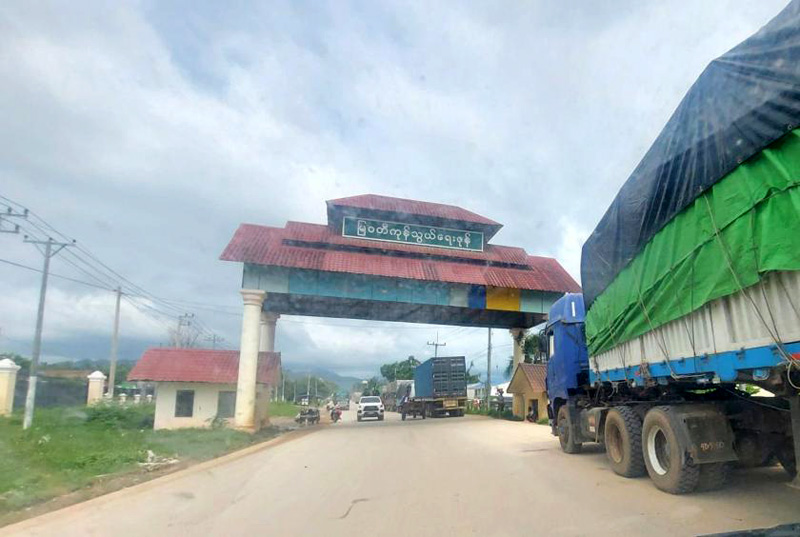
DMG Newsroom
4 March 2023, Myawaddy, Kayin State
The border trade between Myanmar and Thailand through the Kayin State border town of Myawaddy remains sluggish despite the fact that the Myawaddy-Mae Sot Friendship Bridge, which connects Thailand’s western Tak province with Myawaddy, was reopened last month, according to border traders.
On January 12, operations at the border crossing resumed for the first time since 2020, when the two countries closed their borders due to the coronavirus pandemic. Trade volume reached around US$8 million per day in the first 20 days, according to an official of the Myawaddy border trade zone.
But the kyat’s depreciation against the Thai baht and frequent clashes along the Asia Highway between Myawaddy and Kawkareik is affecting the border trade.
“The border trade depends on the exchange rate between kyat and baht, and the situation on the Kawkareik-Myawaddy road,” said a merchant from Myawaddy. “As the kyat has weakened against the baht, local traders receive less profits. So, the trade is slow.”
The current border trade is dominated by imports, with goods on more than 500 cargo trucks being imported into Myanmar daily, according to an official of the Myawaddy border trade zone.
“There has been an increase in imports since the bridge was reopened. And there are fewer exports because of the security situation along the route,” he said.
The daily import value stands at between US$5 million and US$8 million, and export value is around US$2 and US$5 million per day, according to merchants.
“Previously, the export value was between US$3 and US$10 million per day. The export volume has declined significantly compared to previous years,” said a border trader from Myawaddy.
Myanmar-Thai border trade value declined to around US$97 million in the 2022-23 fiscal year, a steep decline from an annual average of US$1 billion in pre-Covid years, according to the border trade department.
Myanmar mainly exports rice powder, rubber and fisheries products, while importing agricultural inputs, pharmaceuticals and medical devices, as well as building materials, cosmetics, foodstuffs and electronics.
The regime allows direct payment with Thai baht and US dollars in the Thai-Myanmar border trade.




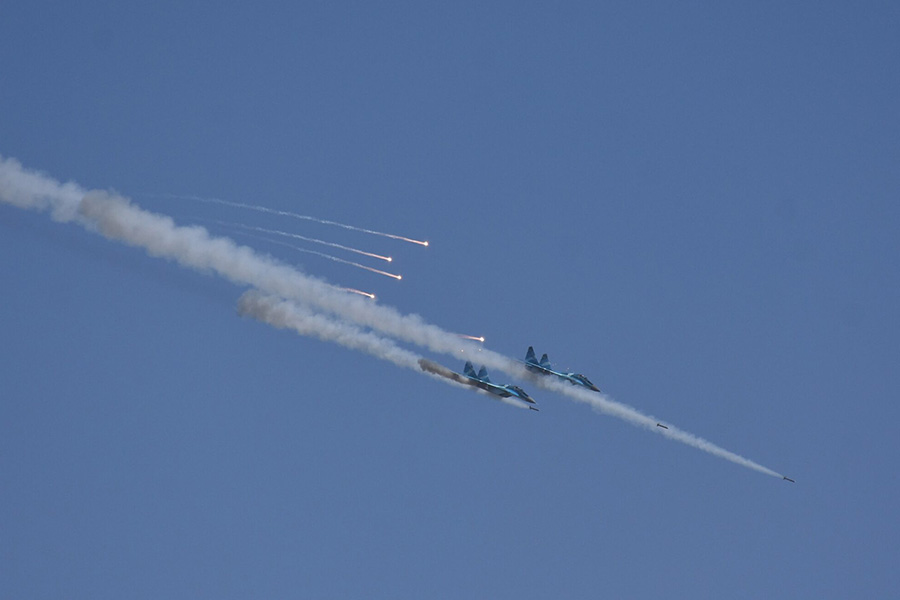
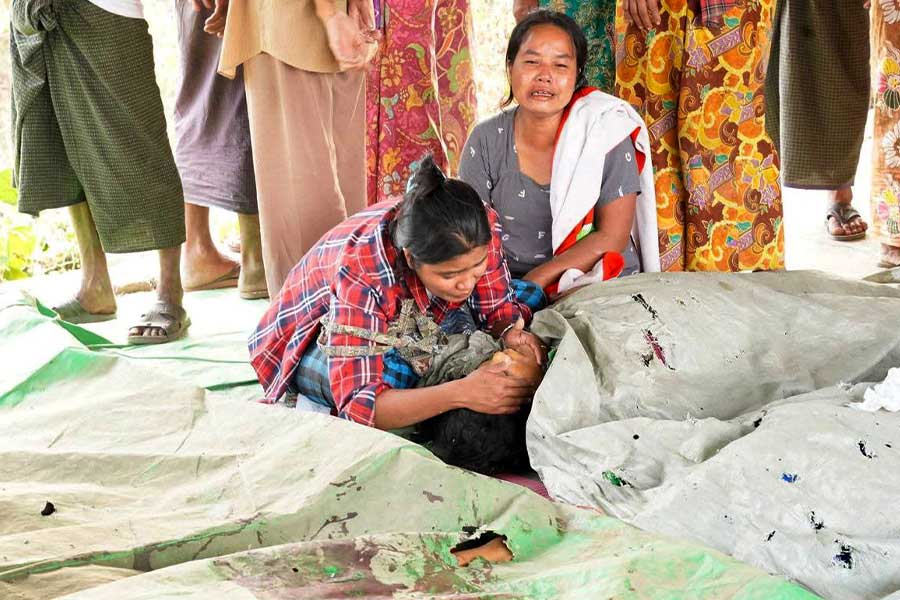
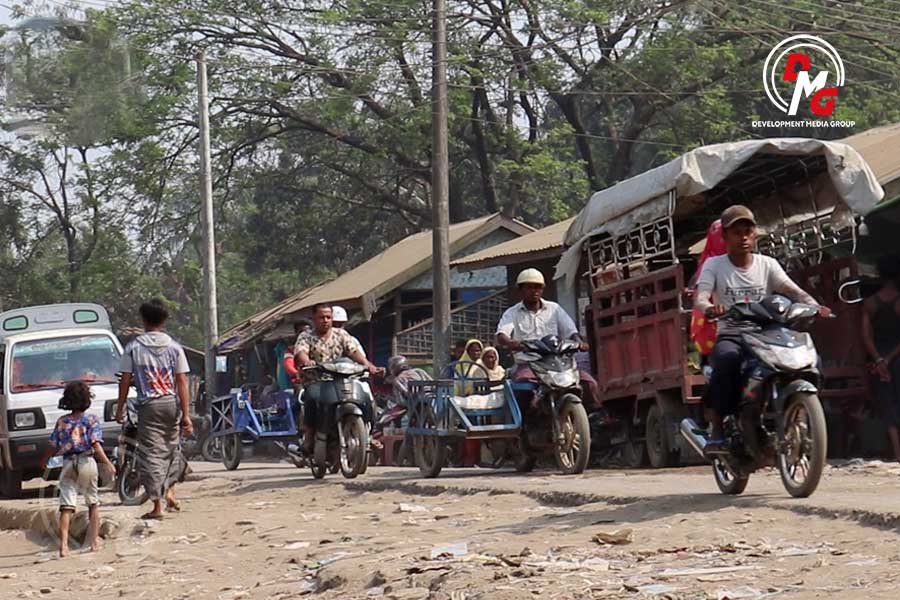
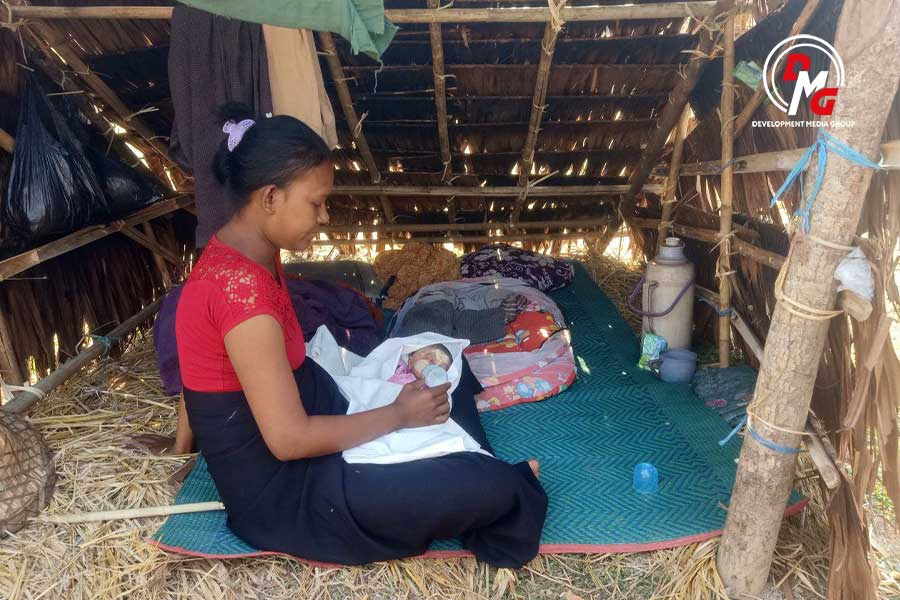









.jpg)